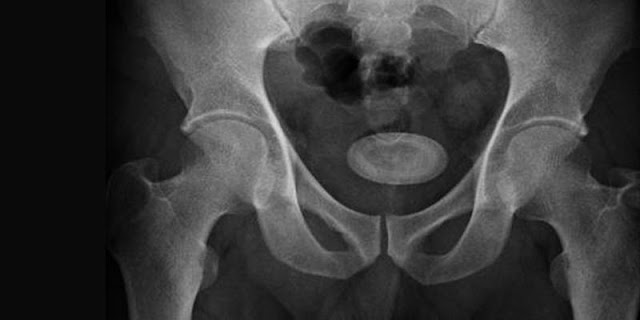When large amounts of minerals in the urine get stored, they form a hard mass known as bladder stones. These stones form when the bladder does not get emptied properly and some amount of urine gets left behind after peeing. At times, bladder stones do not require treatment as they pass out on their own. However, some bladder stones can be treated with either medicines or minimally invasive procedures. However, if the bladder stones are not treated immediately, they might cause urinary tract infections and other health risks. But how can bladder stones be treated?
To provide readers with a better understanding of bladder stones and effective ways of treating them, we have gathered references from a renowned bladder stone specialist in Delhi, Dr. Niren Rao. The expert urologist is the founder of Delhi Urology Hospital and has experience spanning over 19 years. Continue reading the blog post for further details. But before we head towards the treatments, let’s delve into the symptoms and causes of bladder stones.
What are Bladder Stones?
Bladder stones are hard masses of minerals that accumulate in the bladder. While it consists of around 95% water, the remaining 5% is made up of minerals. These minerals have the ability to crystallize and form "stones" when the bladder is unable to empty correctly.
Bladder stones can occasionally occur while they are very small and may go undiscovered. But they can become really large and may need to be removed.
What are the Symptoms of Bladder Stones?
While some bladder stones are so small that they may go unnoticed, others can lead to symptoms such as:
Pain in the bladder
Difficulty in urinating
Burning sensation while urinating
Blood in urine
Unable to control urination
Dark urine
Cloudy urine
The symptoms discussed above might indicate bladder stones. If one is experiencing these symptoms, they must get them evaluated immediately. One can schedule a consultation with Dr. Niren Rao, a well-known urologist, to get the best bladder stone treatment in Delhi.
What Causes Bladder Stones?
An enlarged prostate in men is one of the major causes of bladder stones. The prostate is a small gland that is located near the urethra. The urethra is a tube that empties urine from the body. With age, the prostate becomes larger and pushes against the urethra. The bladder might not empty entirely as a result of this. The possible causes of bladder stones include the following:
Diet problems such as a lack of water
Urinary tract infections
Bladder surgery
Injury to the spinal cord, as that affects how you urinate
Any foreign object found in the blood, i.e., stitches from a medical procedure or catheter
How Can Bladder Stones Be Treated?
The idea of removing bladder stones depends on a range of factors, such as the size, type, and location of the stone. In some cases, drinking plenty of water can help treat the stone and pass it out of the body, whereas in others, surgical procedures would be required. This completely depends on the size and location of the stone. Following are some of the treatments that help treat bladder stones:
1. Medications: If the bladder stones are small and they are not causing any major symptoms, the urologist may prescribe certain medications to dissolve the stones. The medications are prescribed for certain types of stones, such as uric acid stones.
2. Increased Intake of Water: Increase the fluid intake, particularly water, as that helps to flush out the smaller bladder stones. Drinking excessive water can help prevent the formation of certain types of stones and help them pass through the urinary system.
3. Changes in Diet: Increasing the daily water intake may aid in the removal of stones from the body. When the stone passes, one can experience some pain. To prevent further stones from developing, one might also need to reduce their intake of fat and salt.
Note: One must note that if these treatments do not work, then the urologist may advise the patient to undergo the following procedures to get rid of bladder stones:
1. Cystolitholapaxy: Through this procedure, the urinary bladder stone is broken up into tiny fragments and is ultimately flushed out of the body. Since general anesthesia is used during the treatment, the patient experiences no pain. After the patient is unconscious, an instrument known as a cystoscope is inserted into the bladder through the urethra. A cystoscope is a small, thin tube that has a camera on its end. This gives the surgeon a clear view inside the bladder. Once the stone is detected, a laser and ultrasound device are used to break the stone. This finally removes the bladder stone from the body.
2. Surgery: Surgery may be required to remove stones that are too big or difficult to break. Depending on the patient's health and the severity of the stones, there are a number of surgical treatments available for treating bladder stones. The urologist will let the patient know the best method to get rid of bladder stones.
Final Takeaway
Bladder stones are stones that form in the bladder and can be caused by an enlarged prostate in men, a lack of water intake, urinary tract infections, bladder surgery, etc. If one is experiencing bladder stones that are causing them severe pain, they must seek the help of a urologist to get them treated.
Dr. Niren Rao is a famous urology doctor in Delhi and the founder of the esteemed Delhi Urology Hospital. He will determine the patient's overall health and recommend medications, diet, and lifestyle changes to help them get rid of bladder stones. If these procedures do not work, a cystolitholapaxy will be performed.
Also, the cost of bladder stone surgery at Delhi Urology Hospital starts at Rs. 25000. To know the exact cost, visit the hospital today!
Read More:

Comments
Post a Comment